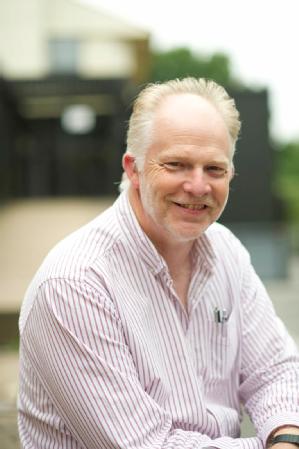New Ebola research "paper does not fundamentally change our understanding of Ebola virus transmission" - Prof David Evans
 Professor David Evans, of the University of Warwick's School of Life Science, has provided commented upon the newly published,in Science, modelling paper looking at interventons needed to contain Ebola in West Africa.
Professor David Evans, of the University of Warwick's School of Life Science, has provided commented upon the newly published,in Science, modelling paper looking at interventons needed to contain Ebola in West Africa.
"This paper does not fundamentally change our understanding of Ebola virus transmission and how to control it", Professor Evans argues, "It emphasises the importance of education of the population to achieve the maximum benefit. It also makes clear that the prompt application of these very same containment methods in March, April and May would have resulted in the outbreak being controlled by now."
Professor Easton's expert comment in full:
“This is one of several recent papers that attempts to predict the course of the Ebola virus outbreak in West Africa based upon historic outbreaks and current case numbers. It extends this analysis to investigate the differential impact of a variety of containment practices on the spread of the disease.
“In this study, the R0 calculated for Ebola virus – the basic reproductive number, or the number of new cases arising from each infected patient – was 1.63. The impact of reduced infections in hospitals, sanitary burial, isolation, contact tracing and quarantine on the R0 was then predicted. Of these, unsanitary burial practices had the most dramatic impact, alone reducing the R0 below 1. R0 must be below 1 for the outbreak to be controlled.
“In contrast, reductions in transmissions in hospitals and the community had a much less marked effect. Curfews and similar movement restrictions were also ineffective in controlling the outbreak and a previous attempt to impose these in the West Point slum region of Monrovia resulted in rioting.
“As awareness of the disease and routes of infection become more widely advertised and accepted it is likely that there will be a reduction in funeral transmission which, in previous outbreaks in DRC and Uganda, was already known to be important in controlling the disease. However, as the numbers of cases inexorably increases it becomes increasingly difficult to either trace contacts or – unless the scale of the relief effort is significantly increased – isolate them in hospitals.
“This paper does not fundamentally change our understanding of Ebola virus transmission and how to control it. It emphasises the importance of education of the population to achieve the maximum benefit. It also makes clear that the prompt application of these very same containment methods in March, April and May would have resulted in the outbreak being controlled by now.”
To speak with Professor Evans please contact:
Tom Frew - International Press Officer, University of Warwick;
a dot t dot frew at warwick dot ac dot uk
+44 (0) 2476575910
Professor David Evans;
D dot J dot Evans at warwick dot ac dot uk
Click here for more information on Professor Evans.
